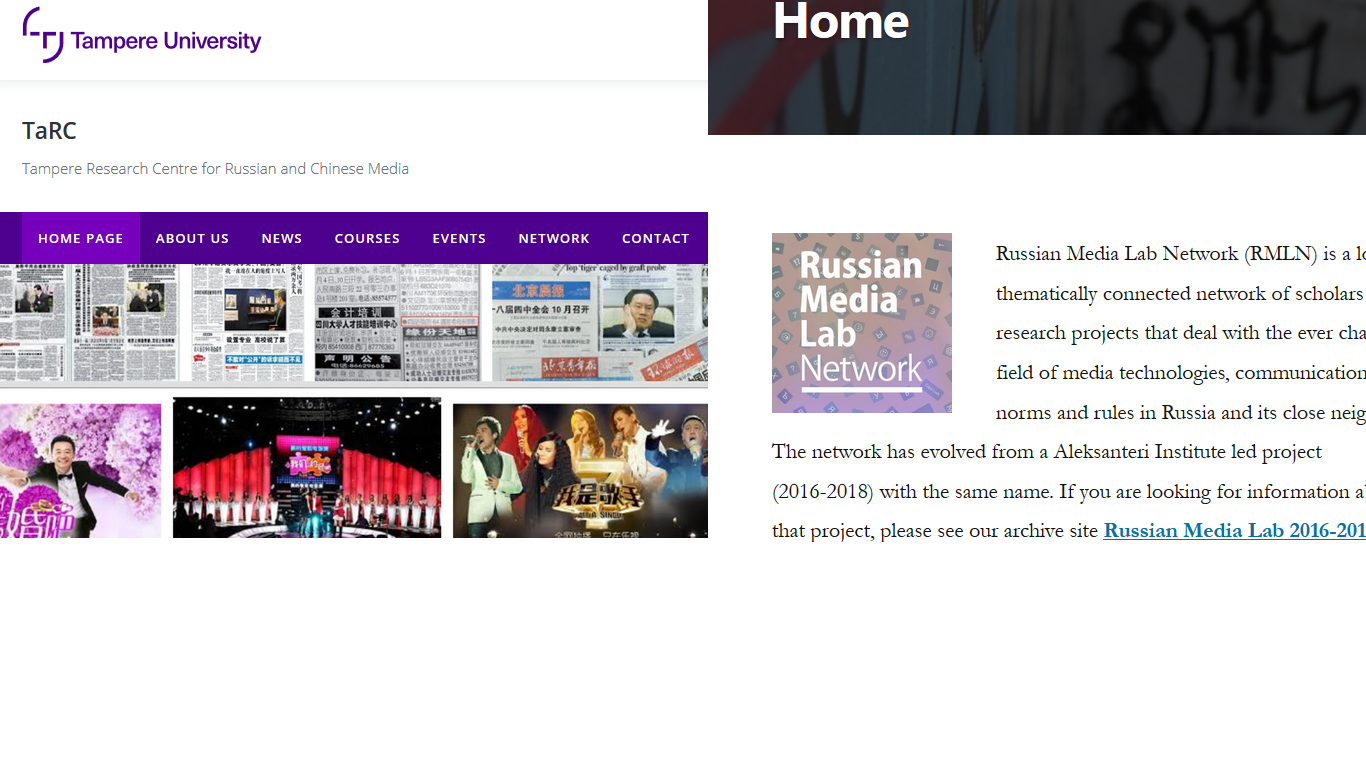The next meeting of the collaborative project between TaRC and the Russian Media Lab Network (University of Helsinki) is soon upon us! The next Online Talks on Russian Media on Tuesday, March 9, investigates how the state and private companies in Russia co-operate to effectuate online media control.
The speakers, Mariëlle Wijermars and Liudmila Sivetc, argue that to understand how online media control is effectuated in states with restricted media freedom, examining a greater variety of actors and their interactions is essential. Instead of more micro-level studies – shifting attention from media ownership to practices of media professionals – they redirect focus to the macro-level of digital infrastructures.
In current digital ecosystems, the degree of media independence becomes irrelevant when reporting is difficult to access, e.g. when media are not indexed or recommended by search engines, news aggregators and social media. This is all the more important since (authoritarian) governments increasingly adopt policies that not simply govern internet infrastructure but govern the internet by its infrastructure. They thereby leverage the power of private infrastructure owners to achieve more effective, but less easily perceptible, control over online content dissemination.
Russia also follows this strategy, yet its leveraging of public-private partnerships has thus far attracted little attention. Mariëlle and Liudmila’s talk, therefore, analyses how the Russian government leverages private power by cooperating with key internet infrastructure owners.
They illustrate their theoretical argument by examining the Netoscope project – a database of .ru domain names suspected of malware, botnet or phishing activities – in which Roskomnadzor cooperates with e.g. Yandex (ranks listed domains lower in their search results), Mail.ru, Kaspersky Lab, and foreign partners.
Based on publicly available reports and semi-structured interviews, their paper discusses the degree of influence, control, and oversight of Netoscope’s participating partners over the database and its applications, and the extent to which Roskomnadzor’s participation has changed the project practices.
The talk “Leveraging public-private partnerships in effectuating online media control: The case of Russian Netoscope” will be delivered on Zoom on Tuesday, March 9, from 12:00 to 13:30 (Finnish time). The talk will be moderated by Docent, Senior Lecturer Katja Lehtisaari (Tampere University). If you want to participate and get emails about the next online talks, please leave your contact information here.
Speaker bios:
Dr. Mariëlle Wijermars is Assistant Professor in Cyber-Security and Politics at Maastricht University and Visiting Researcher at the Aleksanteri Institute of the University of Helsinki. Previously, she was a Rubicon postdoctoral fellow at the University of Helsinki. She conducts research on algorithmic governance and the human rights implications of Internet policy. She is co-editor of The Palgrave Handbook of Digital Russia Studies (Palgrave Macmillan, 2021) and Freedom of Expression in Russia’s New Mediasphere (Routledge, 2020)
LLM Liudmila Sivetc is a Doctoral Candidate in the Faculty of Law, University of Turku. Her research interest is connected to Internet regulation and freedom of expression. Her most recent work has appeared in Freedom of Expression in Russia’s New Mediasphere (Routledge, 2020).

